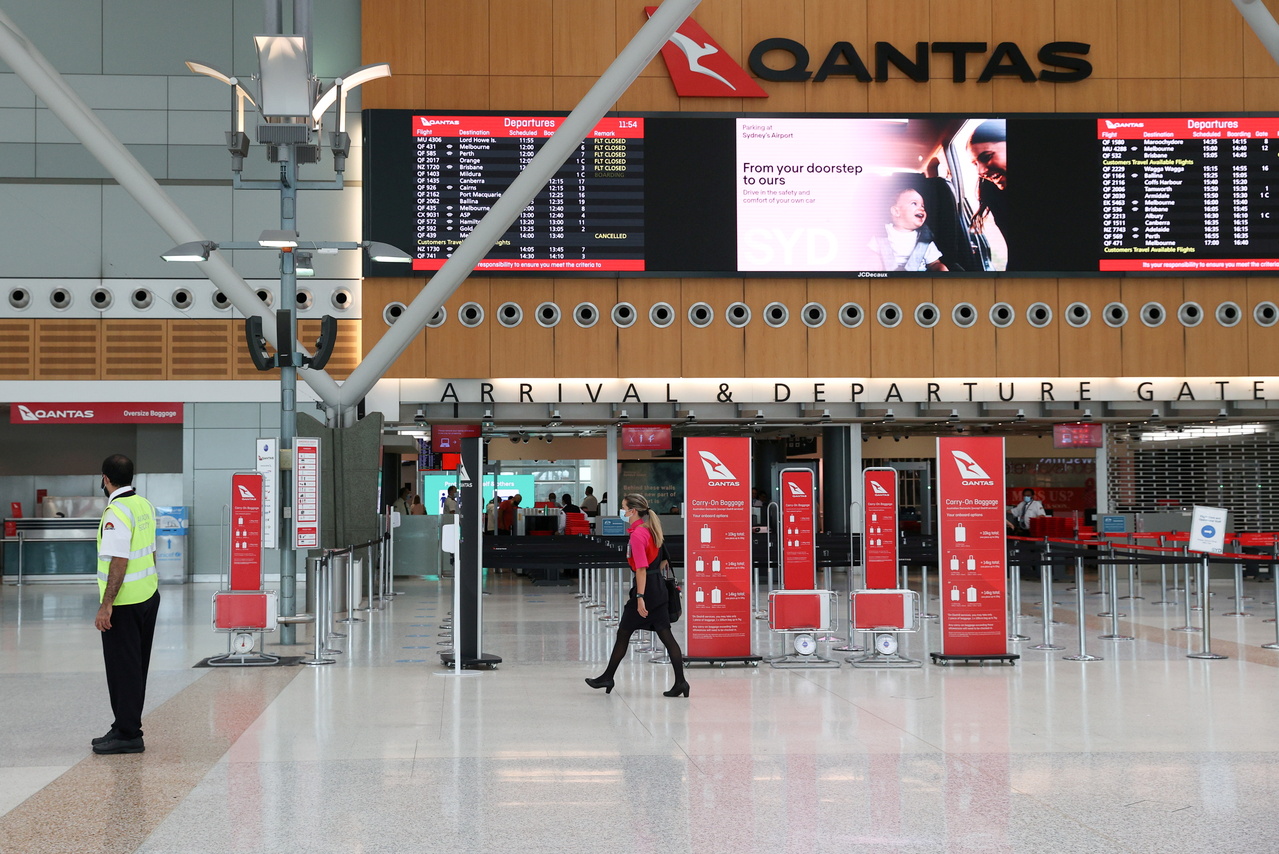Lengthy border closures in Australia prompt calls for 'amnesty' for migrant workers
Sign up now: Get insights on Asia's fast-moving developments

In May 2021, there were just 10,100 arrivals on temporary visas.
PHOTO: REUTERS
SYDNEY - Australia's strict border closures have ended its usual mass influx of migrants and prompted calls for the federal government to grant a "migrant amnesty", particularly to those whose visas have expired.
In the last full financial year before the pandemic, from mid-2018 to mid-2019, there were 537,800 migrant arrivals, including about 160,000 skilled workers and 346,000 people on temporary visas, including short-term workers and international students.
But the flow came to a sharp halt last year as Australia imposed some of the world's strictest travel curbs.
In May this year, for instance, there were just 10,100 arrivals on temporary visas.
The lack of migrants has led to shortages of workers in a range of sectors, including hospitality and agriculture.
A recent survey by Business NSW, which represents businesses in the most-populous state of New South Wales (NSW), found that 42 per cent of firms believed skill shortages were causing a "significant" toll, including lost customers.
The NSW government's chief economist, Mr Stephen Walters, said the loss of new migrants and international student arrivals was having "profound" effects on the state's economy.
"The cost is substantial," he told the Sydney Morning Herald.
"Population has been a major driver of growth in our economy over the past decade."
Mr Shekar Mani, director of Saravanaa Bhavan, an Indian restaurant chain, told SBS News last month that a lack of workers had forced the business to abandon plans to open new outlets.
"Prior to Covid-19, we were planning to open two more restaurants, but for now, we have decided against that as the business has been badly hit by the pandemic and the shortage of staff is affecting our operations," he said.
"We are not able to find skilled staff even if we pay them more."
The lack of migrants has prompted calls to allow temporary visa holders who are already in the country to stay, and to grant visas to those whose visas have already expired, as long as they meet health and character tests.
Farmers have been among the vocal sectors calling for an amnesty for undocumented workers because they are heavily reliant on short-term foreign workers during picking seasons.
Australia currently has an estimated 60,000 to 100,000 undocumented workers.
A report earlier this year by the National Agricultural Labour Advisory Committee, a body that advises the federal government, said the pandemic provided a "unique chance" to grant visas to undocumented workers, particularly as some may avoid being vaccinated out of fears of being punished for being in the country.
Several MPs from the rural-based Nationals, the smaller party in the ruling Liberal-National Coalition, backed the calls.
But the Department of Home Affairs has rejected proposals for an amnesty for undocumented workers, saying it would create "perverse incentives" and would encourage breaches of migration laws.
So far, the federal government has made it easier for some temporary visa holders to stay.
Some foreign workers in the tourism and agriculture sectors have been able to extend their visas by up to 12 months.
International students working in sectors such as aged care, agriculture, tourism and hospitality have been allowed to work more than the usual limit of 40 hours per fortnight.
But there are calls to go further. The Australia India Business Council has reportedly called for a fast track to residency for temporary workers and skilled migrants from India, which has been the largest source of migrants in recent years.
According to a recent paper by the Parliamentary Library, Australia offered amnesties for visa overstayers or irregular arrivals in 1974, 1976 and 1980.
There had also been relaxations of visa rules for people caught in Australia during crises in their home countries.
Famously, Australia allowed some 42,000 Chinese students and other Chinese migrants to stay in the country following the Tiananmen Square crackdown in 1989.
But the paper noted: "A look back at policy history shows that Australia has provided very few instances of any kind of migrant amnesty, whether for people in the country irregularly, visa overstayers, or people working in breach of their visa conditions."


